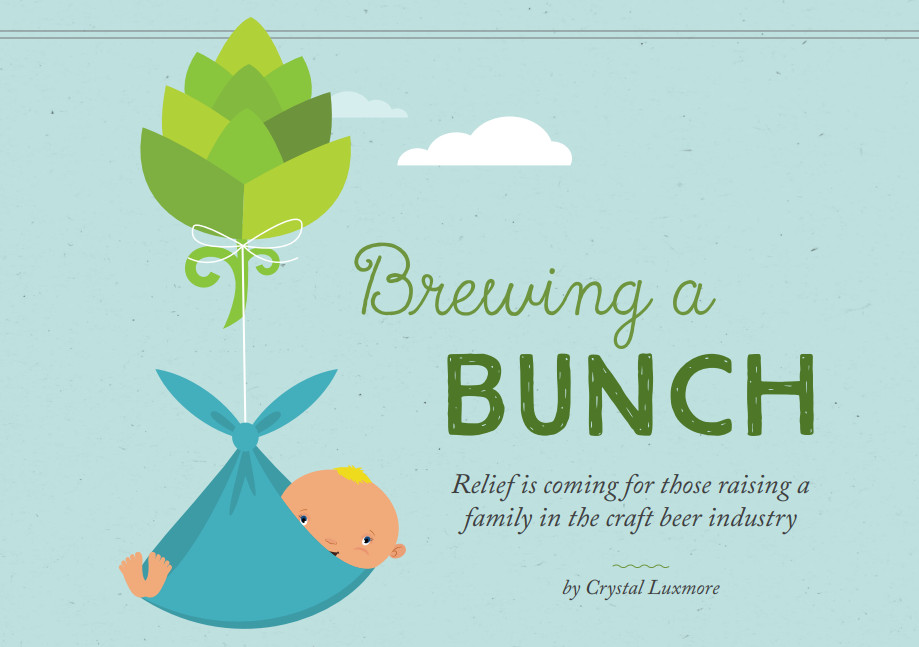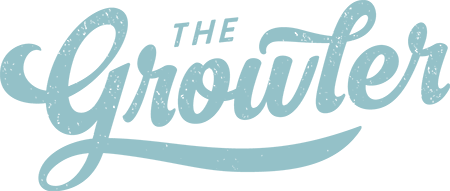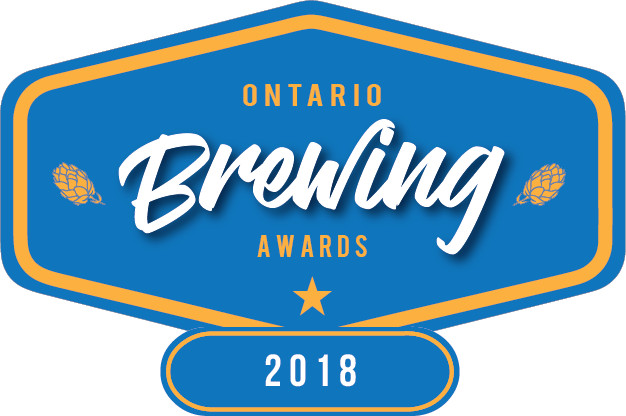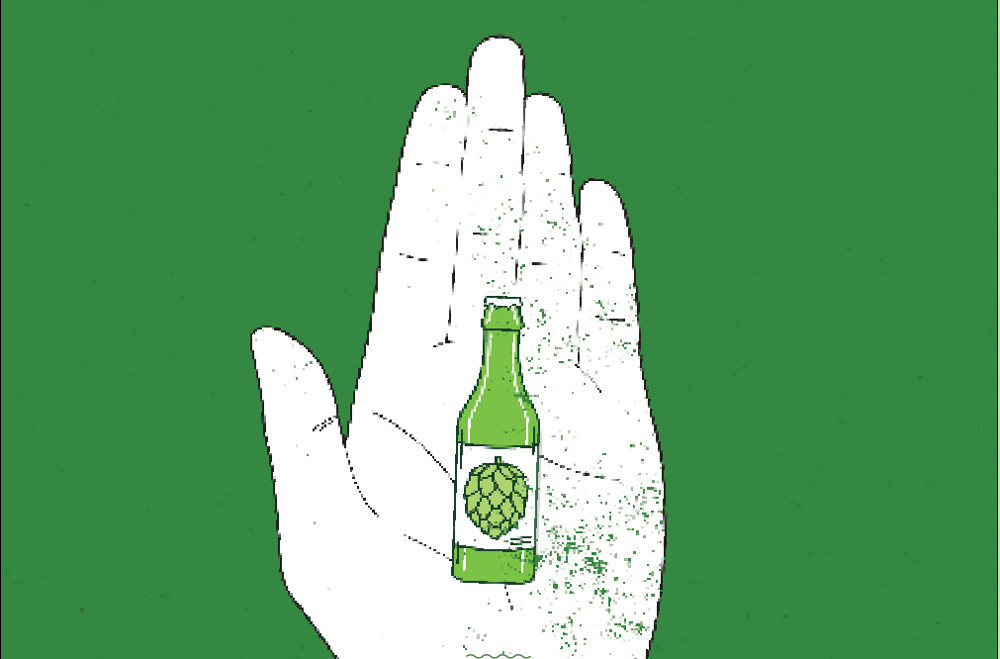
A few months back, Wellington Brewery’s head brewer came to management with a request to take six weeks of paternity leave when his new baby is born this year.
Brewmaster Marvin Dyck, 38, was surprised. He has six kids of his own, all born while he was working at the brewery. When his first child, son Ryan, was born in 2003, Dyck took one day off work. He slept overnight in the delivery room with his wife and new baby before returning to the brewery to oversee production. “I didn’t feel I could be away that long,” he explains.
By the time his fifth daughter was born three years ago, he took a one-week vacation. “I had seniority by then and the brewery has more capacity now so there are actually people who can step in when I’m gone,” he says.
The new federal EI Parental Sharing Benefit (that definitely sounds like a government program, right?) will mean that new fathers and same-sex spouses will have more time at home. To encourage more partners to take time off work post-baby, the plan would mean that a couple gets 40 weeks, instead of 35, if they both participate and each take at least five weeks off.
The bureaucratic details go further, trust me, and it’s good news for the people who dedicate themselves to craft beer and are eager about starting a family. But it will also be a new stress for small and medium-sized breweries in Ontario. Of the six I spoke to for this story, between 75 to 85 per cent of employees are male, and these potential dads are now more likely to take paternity leave.
“What happens when someone who is crucial to your operations wants six weeks off during the summer, our peak time?” asks Dyck. After all, it was only last year that the brewery allowed employees to take two weeks vacation in a row, he says.
Even the idea of paternity leave can be hard for those who call the shots at breweries to wrap their head around since it isn’t something senior male managers experienced when they had children.
“But our world is changing,” says Dyck. “We have so much data on work stress and what it’s doing to people’s work lives, there’s a reason for this legislation.”
Indeed. People don’t get into craft brewing to get rich. They’re driven by passion—often starting their careers fresh out of university or college. But when it comes to growing a family, benefits and salaries have to be in place to support employees, or else they exit, taking valuable skills with them.
The new EI Benefit is just one of a slew of legislative changes introduced this year aimed at fostering gender equity and protecting vulnerable workers. And these new standards will make it a little easier to raise a family while working at a craft brewery.
Like most small businesses, the vast majority of craft breweries do not offer maternity leave top-ups and vary widely when it comes to benefits packages, flex time and salaries. “Lots of craft beer jobs are minimum wage,” says Erin Broadfoot, brewmaster and co-owner of Little Beasts Brewing in Whitby. “And as for the doorways in—you have to shovel your fair amount of junk as you climb the ranks.”
Broadfoot learned this firsthand when she broke into the industry. The mother of three was working as a naturopath when she caught the homebrew bug in 2015. She waited two years until her three kids were out of daycare before she took the pay cut to follow her dream to become a brewer. But with her husband, Keir, now the chief breadwinner, she was also the parent who had to be home for Maia (14), Ruari (8), and Caius (7). She brewed professionally for two years, but the hours weren’t working. Broadfoot started looking at job postings at larger breweries hoping for 9-to-5 hours, but all of the positions there also required eight or 12-hour shifts—and if the brew went wrong—who knew what time you’d get home?
“I decided then, if I’m going to be broke and overworked, I was going to do it on my own terms.”
Together with business partner John Henley, she opened Little Beasts Brewing Co., in Whitby last October. While Broadfoot and Henley both have young kids, they named the brewery after yeast, the “little beasts” of beer. At the back of the small space is a kids zone—they have snacks in the fridge, board games, video games and books to keep the future beer aficionados busy.
“Financially and timewise there are big challenges with owning your own brewery,” says Broadfoot. “But if I choose to bring my kids to work, I can. My son was behind the bar with me at the taproom all weekend.”
Working weekends while raising a family isn’t something Shannon Mulligan wanted to do. So, knowing she was planning to have a family, the 29-year-old stayed away from a sales position, which required a lot of late nights, weekends or travel. These days, as Muskoka’s marketing specialist, she works from her Toronto home and has lots of flexibility.
Mulligan had her baby this March and faced the question of how much her income would change while she was on maternity leave. Most breweries can’t afford to top up the government’s maternity leave benefit, and at Muskoka there wasn’t a top-up in place.
“So I asked if I could make a formal request in writing outlining why I think a maternity leave policy would be great, given that it aligns really well with Muskoka’s values,” says Mulligan. “In the three years I’ve been here we’ve added an RRSP plan and employer contributions, so it seems like a natural progression to me.”
Two months later, her request was granted. Now, along with Steam Whistle, the 22-year-old brewery now offers one of the best employee benefits, education and vacation programs in the province. And Muskoka is the only brewery in Ontario that is Living Wage certified. That means it pays all of its employees a wage that is above a regulated calculation of how much a family of four, with two full-time earners, needs to get by above the poverty line in a given community.
The Ontario Living Wage Network calculated that for people in Muskoka it’s $15.85 per hour. In Toronto, it’s $18.52. If a large number of brewery jobs are paying minimum wage, that doesn’t leave room to support a family.
As breweries grow larger, hopefully more benefits and perks above the bare minimum will come into play. But most change comes when employees ask for it. Whether it’s an entitlement or a perk that isn’t being offered, “it can never hurt to ask for it,” says Mulligan, “And it just might not be on anybody’s radar… but unless you bring it to the forefront it’s very unlikely that things will change.”



